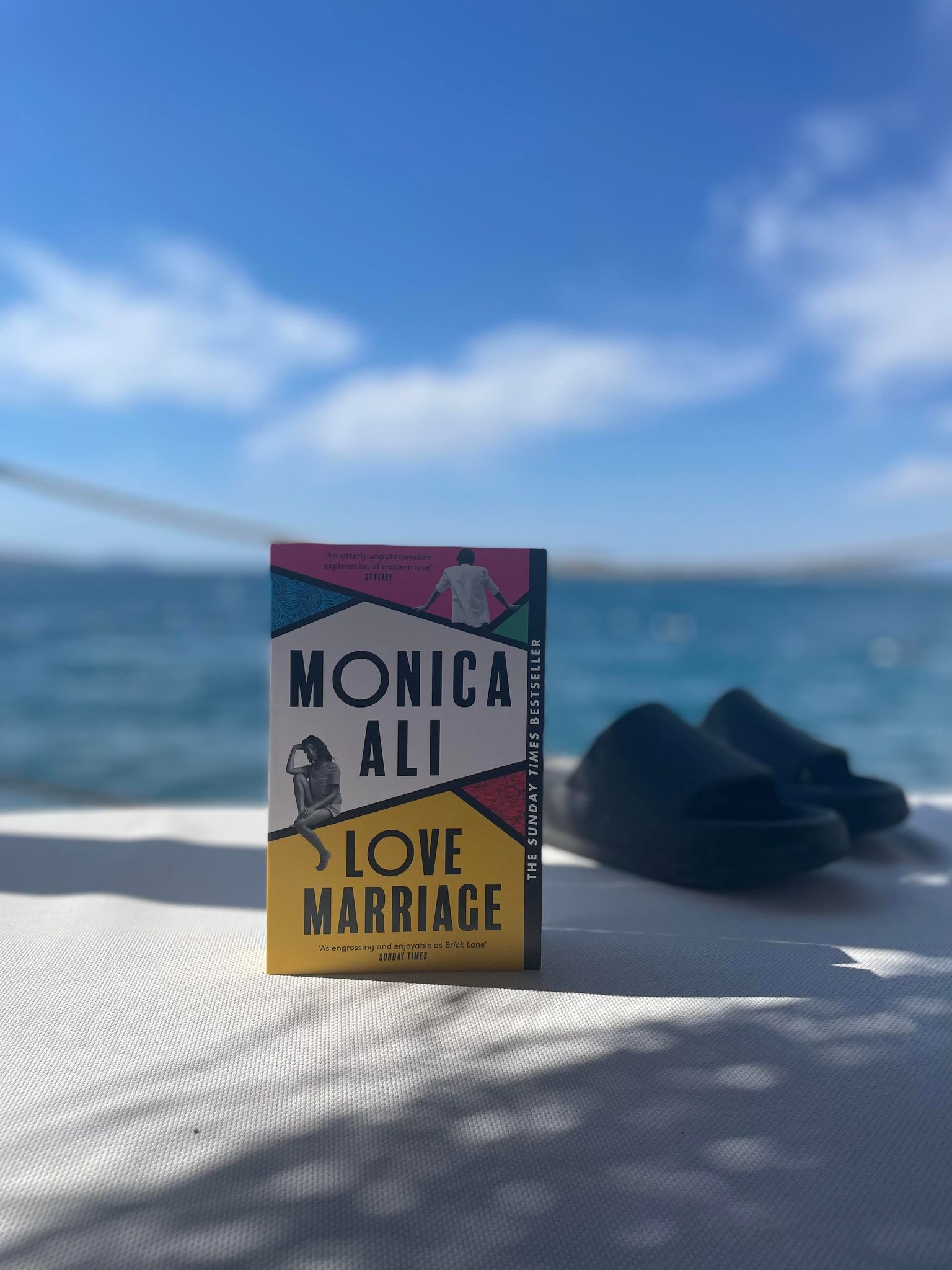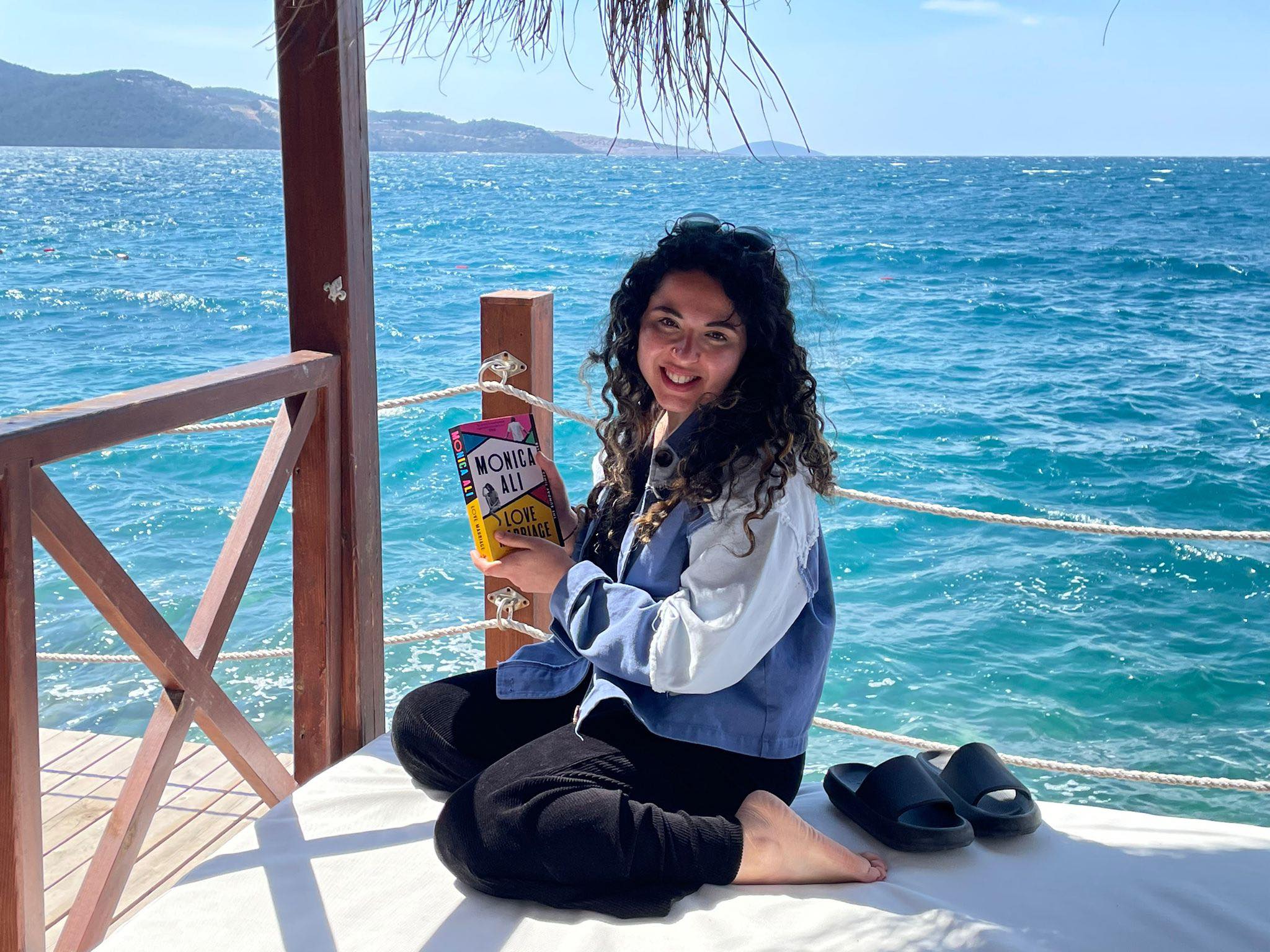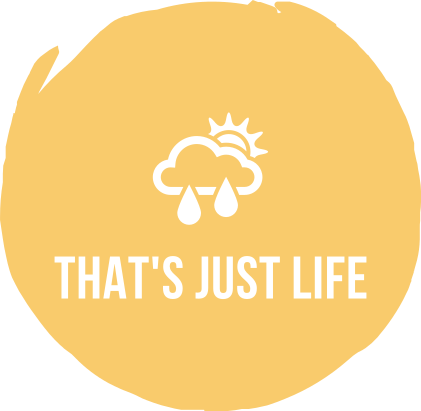Love Marriage by Monica Ali

“Humans always are sinning. Men are not angels. And the angels no longer wonder how humans can sin. They pray for their forgiveness. I will pray also for this.”
So I had a photoshoot with this book before I’d even opened the first page. I thought this book was fated for me and was meant to change my life (LoL) . Let me explain: For weeks I kept seeing the book everywhere. Nowhere was safe, not even Tesco. Being the moneysavingexpert that I am, I refused to buy it. After weeks of it haunting me I finally caved in. That same day a friend gifted it to me. So now I have 2 copies of the book. Fate, is that you? (I refuse to believe it was just a result of good marketing.)
“Rania’s clothes said, This is me! Yasmin’s said, I am a stranger to myself.”
Anyway, it’s safe to say the book didn’t change my life. The only change it elicited in me was frustration, annoyance and the urge to hurt someone.
Love Marriage tells the story of a British Indian Muslim (Yasmin), her white fiancé (Joe) and the events that follow as their families meet, with cultural and class divide. Throw in a world-famous ‘feminist’ mother-in-law and you have some drama. I say the word feminist lightly as I wouldn’t call having a collection of nude photos and photo-exhibition of penises, feminism.

Anyway, I thought this book was going to be an interesting exploration of cultural differences, not only as the families met, but for Yasmin herself as she would have to navigate her family culture versus the British one she was raised in. Yet there was none of this. Instead, what you have is Yasmin’s harsh, critical judgement of her own mother: “Why couldn’t Ma after all these years, learn to dress like a normal person?” and thoughts along the lines of, why doesn’t she understand or use British turns of phrase properly, why is she giving her opinions on feminism? What does she even have to say that’s of worth? Along with “Ma and Baba had a new thought only once a decade.”
Throughout the book, Yasmin is so concerned about other people judging her family, that she doesn’t realise that she is doing all the judging herself. She is self-absorbed, immature and wants the world to agree with her.
Anyway, let’s say we ignore Yasmin, after all maybe Monica Ali wrote her that way for a reason, what we cannot ignore is the rest of the cast of characters. They played into stereotypes and were caricatures. And instead of the ending being realistic, it was contrived. It was the sort of ending you would expect from soap. This could have been acceptable had the book gone down a more light-hearted chick-lit route, but instead the book went for the heavy drama and referred to topics such as abuse, sex addiction and traumatic pasts. Still, the topics were handled so superficially, spanning a few pages that we don’t really feel anything at all. What I can’t understand is how we have pages detailing the wards of a hospital and the layout of the grounds (good old Yasmin is a junior doctor) and yet fewer pages are given when discussing rape?

I will say that as a British Muslim myself, I didn’t like the portrayal of Islam in the book. I think the book didn’t differentiate culture from religion. At times it made it sound like Muslim women are expected to stay home and cook and have no life, when in fact women have more rights than men in Islam and are encouraged to work. (Fun Fact: the first university in the world was founded by a Muslim woman). Anyway, I also didn’t enjoy Yasmin’s mother telling her random religious stories without context. It even made me feel a bit disoriented.
Admittedly, I read the whole book, which is a feat in itself as it’s about 500 pages. I would say there was interest to find out what would happen next, but there was no joy. However, I do think it would be a good book for a book club, simply because of the discussions that would arise, but it’s not a book I would recommend for fun. There are also a few quotable things in the book, that make you pause, so I’ll stick them here. The most likeable character was probably Sandor the therapist.
“At the very bottom of things, thought Sandor, there is always this: the addict’s belief that they are unlovable.”
.
“Joe sighed. “I just thought that if I moved away, if I physically removed myself…” “This thought arises, naturally,” said Sandor. “But here’s something I’ve learned from my patients over the years, especially the drug addicts who often drifted from place to place, town to town, looking for somewhere their lives would be different. What they taught me is that wherever you go, there you are. What you seek to leave behind is something inside you.”

Comments